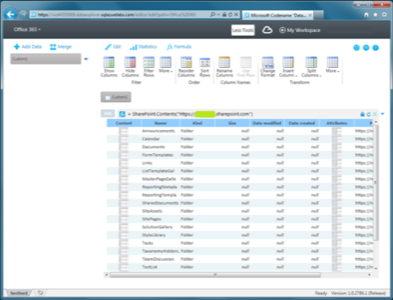
Two rays of light have pierced a so far gloomy winter for Microsoft: the company signed big software deals with both Chicago and the Pentagon, two wins neither Google nor the Federal Trade Commission can dampen.
Chicago Buys Office 365, The Department of Defense Gets That And More
On Thursday, the Windy City announced that it had signed a four-year deal with Microsoft for Office 365, shifting the company’s three email systems, documents and spreadsheets over to Microsoft’s cloud-based platform. Days earlier, the Department of Defense announced an even more sweeping deal, consolidating on Windows 8, Office 2013 and SharePoint 2013 in a three-year deal worth $617 million.
For Microsoft, which had to sit by and endure what was essentially a slap on the wrist to rival Google by the FTC, the two announcements represented a reprieve of sorts. It’s still unclear how Microsoft’s holiday sales fared, but the conventional wisdom appears to be that the Windows 8 launch was disappointing, and that the complementary Windows Phone 8 launch, while appealing, still hasn’t caught fire with consumers, who still clearly prefer iOS and Android devices.
The Business Division Remains Microsoft’s Profit Engine
Year in and year out, however, Microsoft’s Business Division remains the keystone upon which Microsoft supports its other businesses. For Microsoft’s first fiscal quarter ending in October, the division was both the most profitable ($3.6 billion) and generated the most revenue ($5.5 billion). For all the talk about the Windows operating system, that was only Microsoft’s third-most profitable division, and also generated the third-most revenue out of Microsoft’s five business units.
It’s little wonder, then, that Google has taken aim at Microsoft, with its Google Apps for Business, which only recently ceased offering its free services, essentially daring customers to switch to Microsoft. Check the Google Enterprise blog on any given day and you’ll find a list of recent design wins: K-pop sensation PSY’s label, YG Entertainment; Banshee Wines; First Team Real Estate and so on.
Pricing Pressure From Google?
Microsoft is still getting wins, too, though Google’s pricing pressure has undoubtedly had an effect. The DOD’s deal, led by the Army Contracting Command in collaboration with the Defense Information Systems Agency, the Army and the Air Force, “demonstrates the best pricing DOD has received to date for Microsoft desktop and server software licenses”, officials said, and representing a $70 million per-year savings. That means that, for whatever reason, some of Microsoft’s traditional revenue stream has dried up.
The question, of course, is why the DOD received preferential pricing: military reluctance to use Windows 8? Pricing pressure from Google Apps? And since the package has been customized to meet the specialized needs of the Defense Department, does the DOD’s package use the Windows 8 interface and Start screen? It’s rather hard to believe that military personnel would be swiping in from the sides of the Windows 8 screens, sharing battle plans and other sensitive documents via the Windows 8 charms.
Meanwhile, the City of Chicago did not publicly disclose how much money it spent on the contract with Microsoft, and the contract is not (yet) on the city’s website. The City of Chicago claimed that it saved $400,000 per year for its 30,000 government users.
“This strategy is an innovative solution for the City, making our operations more effective and secure and saving taxpayer money,” said Chicago Mayor Rahm Emanuel, in a statement. “We are leveraging new technologies to streamline and modernize the way we do business in order to provide the residents of Chicago with the best service at the best price.”
Cloud… And No Cloud
The contracts also reveal some hidden gotchas for customers, too. The City of Chicago said that all of its email and desktop application users would migrate to the cloud “by the end of 2013,” meaning that the city will require a full year to make its transition. And at the end of the contract, what then? Will Chicago switch back to a locally hosted email system? Of course not – the cost would be prohibitive. From now until eternity, Chicago will be stuck in the cloud, with really only Google and Microsoft to choose from as hosted email.
But while Chicago has bought itself a cloud solution, the DOD has not. Microsoft may be charging less for Office 365 in an attempt to convince users to switch, but the DOD appears willing to pay more for both security and flexibility.










